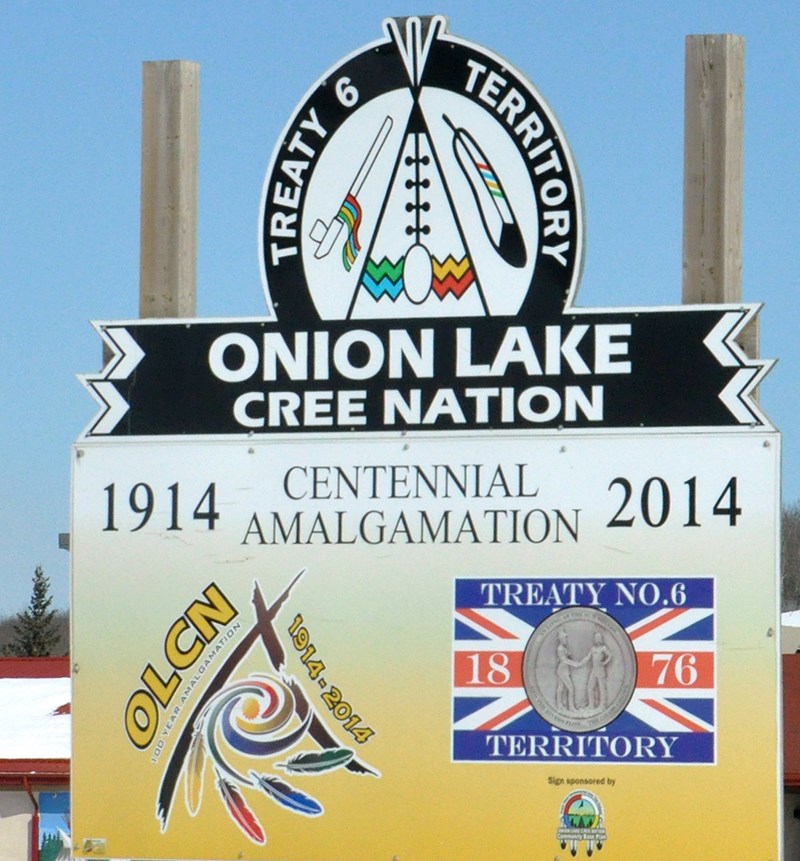Onion Lake Cree Nation band council has “banished” 32 individuals from the community as they fight illegal drug and gang activity.
The banished individuals have “contravened and violated peace and good order in the territory of the Onion Lake Cree Nation, and thereby are banished,” Okimaw (Chief) Henry Lewis posted on OLCN’s website Sept. 3.
The banishment means those individuals are cut off all programs and services including income assistance and utility connections.
In addition, they won’t be able to go into any OLCN public buildings, participate in any programs and services, or enter any of OLCN businesses.
“We recognize and support the goal of a healthy safe community as part of the Drug and Gang strategy initiative to strengthen the general well being of the Nation,” said Lewis.
“Our Native Justice Department will provide a list of names to OLCN businesses, programs and services of individuals who have been banished through BCR.”
Names and some photos of the banned individuals were posted on OLCN’s website.
Lewis said the band council is exercising its authority and jurisdiction under convention law and land law. If any of the banned individuals are seen on OLCN the band council said they want people to call Onion Lake RCMP.
Other measures
OLCN is installing wireless video surveillance cameras at key locations throughout the community and putting back up road blocks and check points.
The RCMP Crime Reduction Team was sent to Onion Lake Aug. 12 to 16 to help reduce gang activity. The RCMP CRT members collaborate with communities and partner agencies to reduce gang violence and activity.
Earlier this year OLCN leadership teamed up with Onion Lake RCMP to release gang awareness prevention resources.
OLCN declared a state of emergency Jan. 22, 2020, after gang-related violence and drug activity. They drove out suspected gang members and boarded up about 15 suspected meth houses.
OLCN has used more than $1 million of its own money for additional support for housing and health care to deal with its addiction and gang crisis. They have also created sub-committees and started youth initiatives and programming.
OLCN purchased a 49-person dormitory this spring from a camp service out of Alberta to provide immediate safe homes for those wanting to get out of gangs and break addictions.
OLCN leadership went to Ottawa in January asking Indigenous Services Canada for an addition $15-16 million in funding to fight drug and gang related activity. Tuesday morning OLCN leadership met with Indigenous and Northern Affairs Canada.
Help for Onion Lake Cree Nation in its fight against gang and drug-related violence was interrupted due to COVID-19, according to a spokesperson from Indigenous Services Canada.
“We have been working on a joint Federal government strategy with Onion Lake Cree Nation to determine how existing federal programs from multiple departments could support elements of their proposal,” said Martine Stevens, media relations for Indigenous Services Canada on Sept. 2. “This effort has been delayed due to the onset of the COVID-19 pandemic.”
OLCN has three townships spanning 188,000 acres and is on the Saskatchewan-Alberta border about 50 kilometres north of Lloydminster, Sask.




